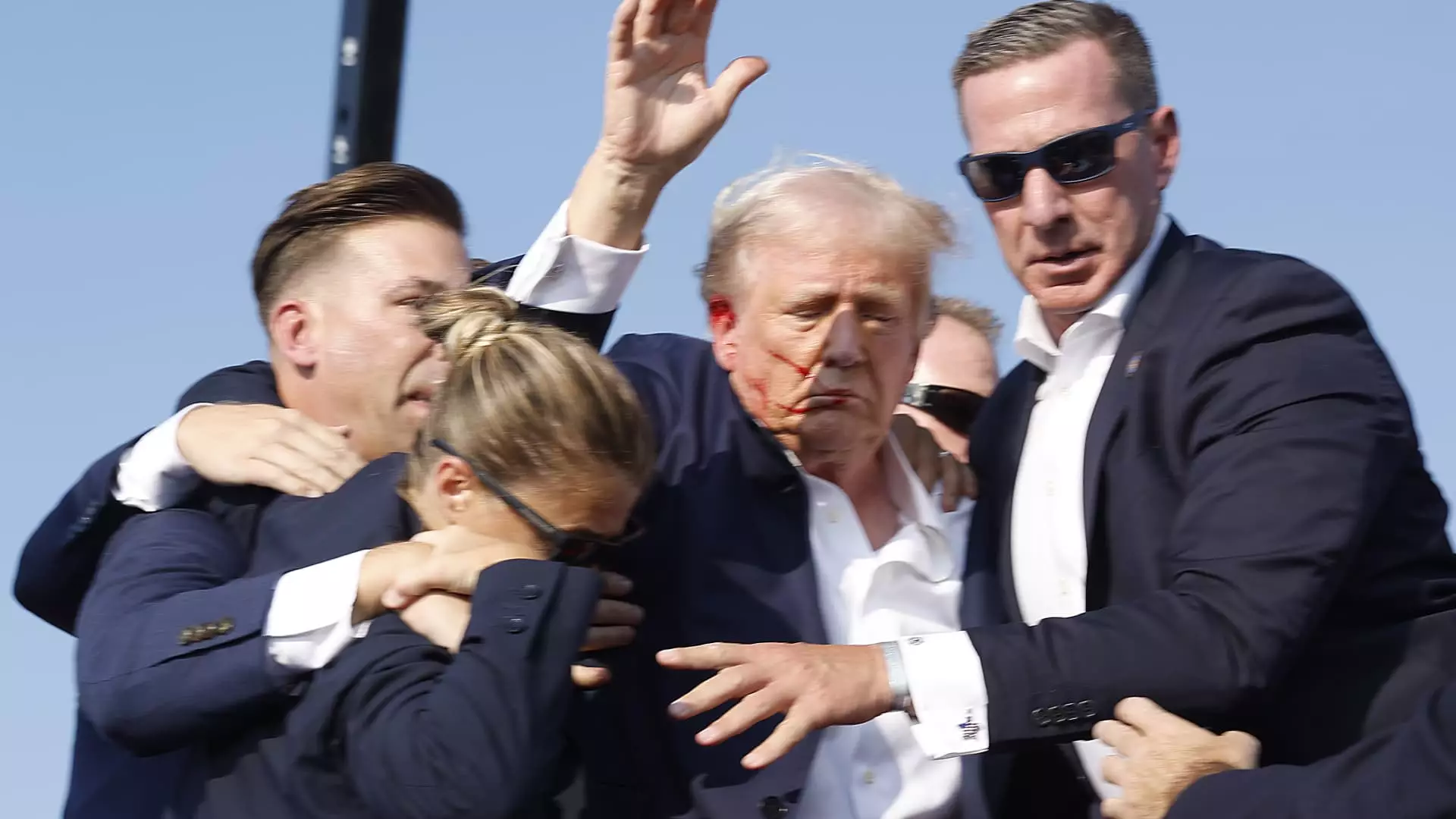In a harrowing turn of events, former President Donald Trump was swiftly evacuated from the stage of a rally in Pennsylvania after gunshots rang out, raising serious questions about security at public events and the safety of political figures in an increasingly polarized climate. This incident, which resulted in the death of one rally attendee and left another in critical condition, underscores the complex nature of political gatherings and the growing threats that new dynamics are introducing.
As news broke, the scene quickly became chaotic. Eyewitness accounts dramatized a moment of panic as Trump was visibly affected, demonstrated in a viral video where he instinctively recoiled and collapsed to the ground. Secret Service agents promptly surrounded him, ensuring his swift exit from a precarious situation. Reports of blood visible on the former president’s head intensified fears, although it was later confirmed that he was immediately taken to a medical facility, where he was stated to be “fine” by his spokesperson.
The security perimeter, set up by the Secret Service, unfortunately, failed to contain the shooter, who was located outside the designated area. This lapse in security raises concerns about safety protocols for high-profile events. Senior law enforcement officials indicated that the security infrastructure established to protect Trump was breached, allowing gunfire to erupt amidst a crowd that had gathered to hear his remarks.
Political gatherings have historically encountered their fair share of disruptions, but incidents of gun violence raise the stakes immensely. Witnesses to the shooting described a scene of terror and confusion; a doctor present recounted the immediate aftermath of a shooting victim being struck, reflecting the kind of surreal fear that can grip an audience when safety is compromised. Such events demand that the nation reassess not only the security protocols in place for political figures but also examine the cultural undercurrents that lead to such violent outbursts.
In the aftermath of the shooting, the Trump campaign’s communications strategy pivoted dramatically. A memo indicative of a “communications lockdown” emphasized the gravity of the situation, advising staff against any form of disclosure, speculation, or social media engagement. This approach not only protects the campaign’s interests but also illustrates the delicate nature of political discourse, especially when a sudden act of violence thrusts it into the limelight.
President Joe Biden issued a statement on the incident, expressing his hope to communicate with the former president and addressing the alarming nature of the occurrence by highlighting the need for further information. Biden’s restrained response subtly underscored the seriousness of the shooting without jumping to conclusions about the motivations behind the violence, including whether it was an assassination attempt.
Public reactions have been mixed, with some viewing the incident as a direct reflection of the heightened tensions within the political landscape in the United States. The divisive nature of contemporary politics, with amplified rhetoric and fervent loyalty, has rendered political figures vulnerable not only to adverse public sentiment but now, it seems, to potential threats to their physical safety as well.
As details continue to emerge regarding the incident in Pennsylvania, it is imperative for both lawmakers and the public to engage in an earnest dialogue about the implications of violence in politics. The fatal shooting of an innocent bystander highlights a disturbing trend that must not be overlooked. The combination of heightened political rhetoric, security lapses, and the alarming frequency of gun violence presents a perfect storm requiring thoughtful deliberation and prompt action.
Ultimately, these events should serve as a catalyst for a broader examination of security protocols at political events, a critical re-evaluation of the societal issues contributing to political violence, and a renewed focus on public safety. It is crucial for the country to reinforce the notion that while political disagreements are inherent in a democratic society, violence can never be justified as a means of expressing dissent or reaching an agenda.


Leave a Reply